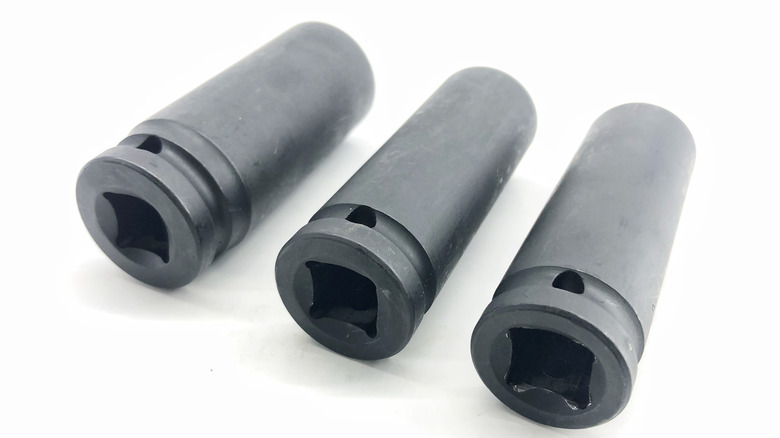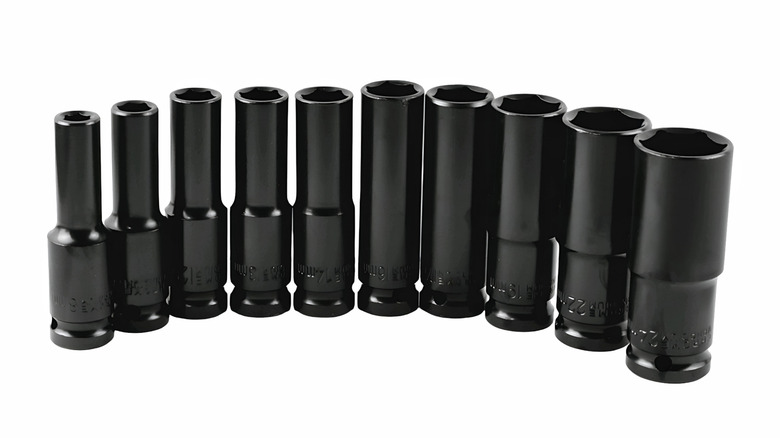Can You Use Impact Sockets As Regular Sockets?
Impact sockets are tool attachments that are rugged and durable enough to resist the strong torsional and vibrational forces that come from impact wrenches. These are normally used together with power tools, including impact wrenches, for tasks that need a lot of torque and, well, impact. Applications where impact sockets are commonly used include equipment repair, heavy machinery maintenance, construction, and automotive repair. Because of the heavy stresses that impact sockets are subjected to, they are made to be a lot stronger and safer and can be used as regular sockets.
At first glance, it may seem that an impact socket is the same as a regular socket, but there are several differences between the two. One of the most obvious is the coloration of normal sockets because most regular sockets are made from chrome vanadium steel, they have a silver, polished look versus the dull black of impact sockets. Next, the locking mechanism on impact sockets is a groove ring type, unlike regular sockets, which have a ball-groove lock. Lastly, impact sockets tend to be bigger and longer than regular sockets because they are designed for more rigorous and demanding use in industrial settings.
Despite being designed to work with impact tools, impact sockets can be used in place of regular sockets. There are several types of impact sockets, varying in depth, drive size, and shape, with 50% thicker walls compared to a regular socket. This thicker design means they can handle more force, making them very apt when dealing with difficult-to-remove corroded nuts or bolts that need increased energy and leverage to detach. In terms of grip, impact wrenches are very secure, as they have a half-dozen or more points designed to avoid slips, which reduces the risk of rounding off the fasteners.
Stronger and tougher is better
Because of their exceptional strength and ductility, impact sockets are made from a metal called chrome molybdenum steel, or CrMo. Compared to standard sockets that are made of chrome vanadium steel, CrMo is more resilient to deformation and cracking under the high shock loads generated by impact wrenches. Impact sockets, on the other hand, are designed for heavy-duty use in industrial settings where they are paired with impact wrenches of various types, including electrical, hydraulic, and pneumatic torque wrenches that give significantly greater torque output.
The advantages of using impact sockets begin with their greater strength and durability. This is due to their stronger metal that allows them to be more ductile and elastic, ensuring they will not crack or shatter during use. In addition, while the chromoly used in impact sockets already has corrosion resistance properties, they are also layered with a finish of black oxide, which gives them additional protection against corrosion that can prolong the lifespan of the tool. Alongside this, there are also disadvantages when using impact sockets, starting with their cost because impact sockets are more expensive than regular sockets, they're heavier because of the metal they're made from, and finally, they can damage nuts or bolts if improperly used.
When deciding which socket to use, assessing the needs of the task is essential. With their similar functions, using impact sockets instead of regular sockets is fine. Because of their robust quality, impact sockets can execute regular socket applications without any worry. However, the opposite of this is unacceptable because using regular sockets for jobs requiring impact sockets is dangerous and a potential injury risk. What's important to remember is to practice work safety when using sockets and always wear safety equipment when working.

